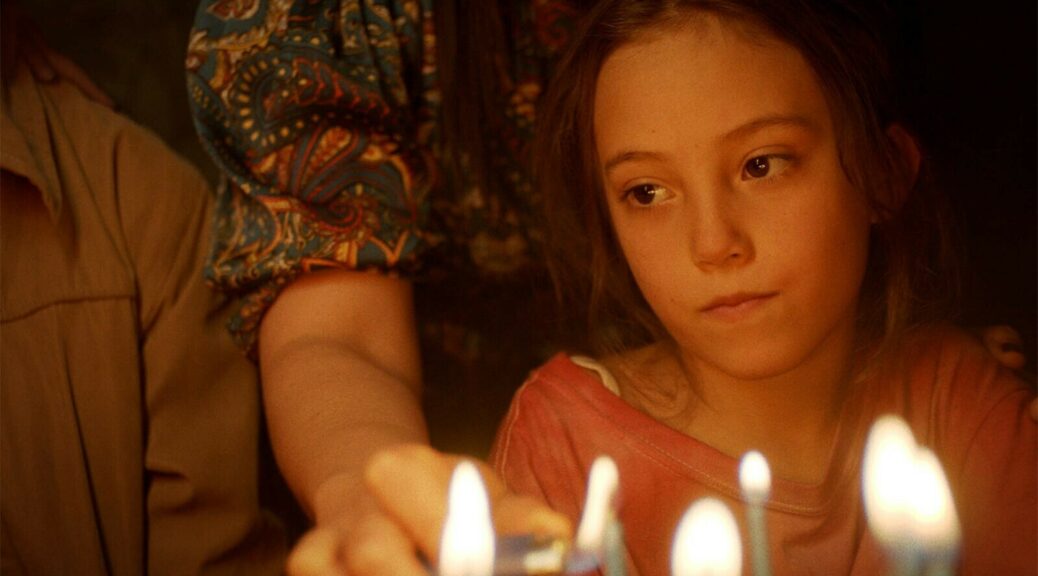Totem
by Brandon Thomas
By definition, a totem is “a natural object or animal that is believed by a particular society to have spiritual significance and that is adopted by it as an emblem.” With Totem, her second feature-film, director Lila Aviles approaches the esoteric idea of totems through the eyes of a curious 7-year-old girl who is trying to understand the familial chaos surrounding her.
Having been dropped off at her grandfather’s house, Sol (Naima Senties) spends the day wandering from room to room, conversation to conversation, as the adults around her rush to set up a birthday party for Sol’s ailing father. As night falls and the party inches closer, Sol tries to make sense of the mixture of emotions, reactions, and actions coming from each member of her family.
The bulk of Totem is told solely through Sol’s eyes. It’s not a candy-coated depiction of a child’s viewpoint but it’s still an honest one. There’s a feeling of wonderment in even the most mundane things Sol observes. As children, many of us focused on the tiniest of details and differences around us. It’s something the camera captures expertly as is floats through the scene – making the audience feel less like an observer and more a part of the family. Visually, the use of the 1.33:1 aspect ratio – while probably overused in many modern movies – feels at home in the story Totem is telling. This tighter ratio that makes the image look cramped is a perfect visual metaphor for Sol’s large extended family crammed together in her grandfather’s modest home.
Despite the melancholy backdrop of the party, Totem never succumbs to heaviness or melodrama. Each member of Sol’s family is trying to make sense of their own fear and impending grief surrounding her father’s illness. For Sol, this difference is confusing and somewhat alienating. For us, the audience, it’s honest and all too relatable.
It’s never made clear how much Sol knows about her father’s condition. However, despite his circumstances, Sol’s love for her father is undeniable as are his reciprocated feelings, even though they are shared through pain and suffering. For Sol, the most important thing is seeing her father and feeling his embrace.
And for us that becomes the most important thing too.

